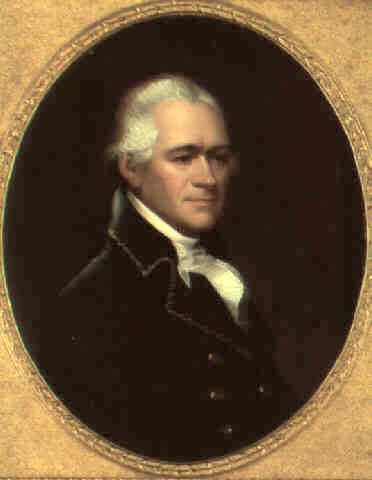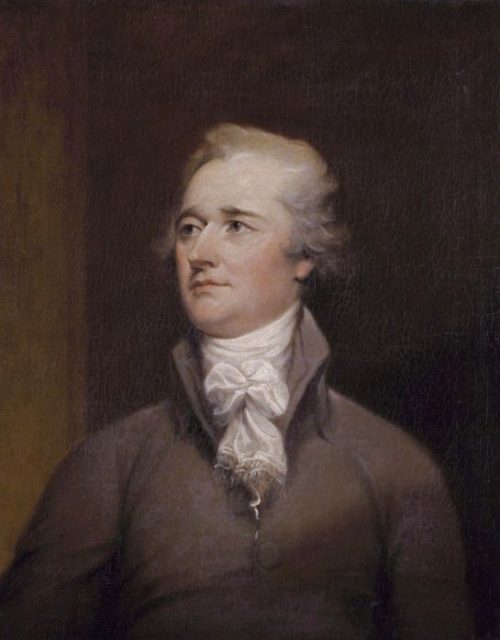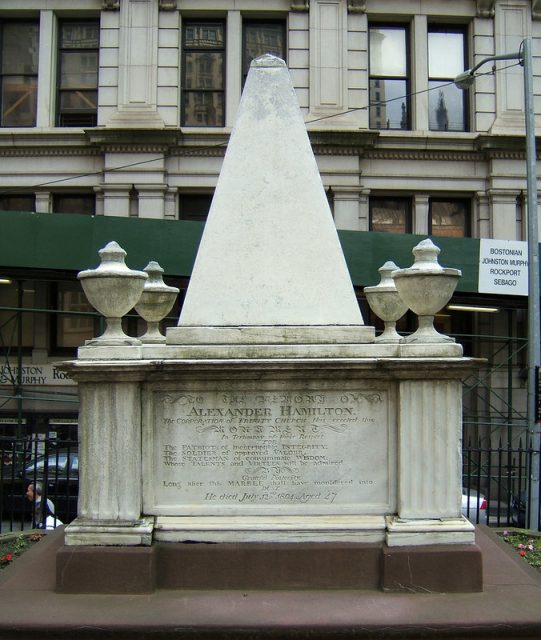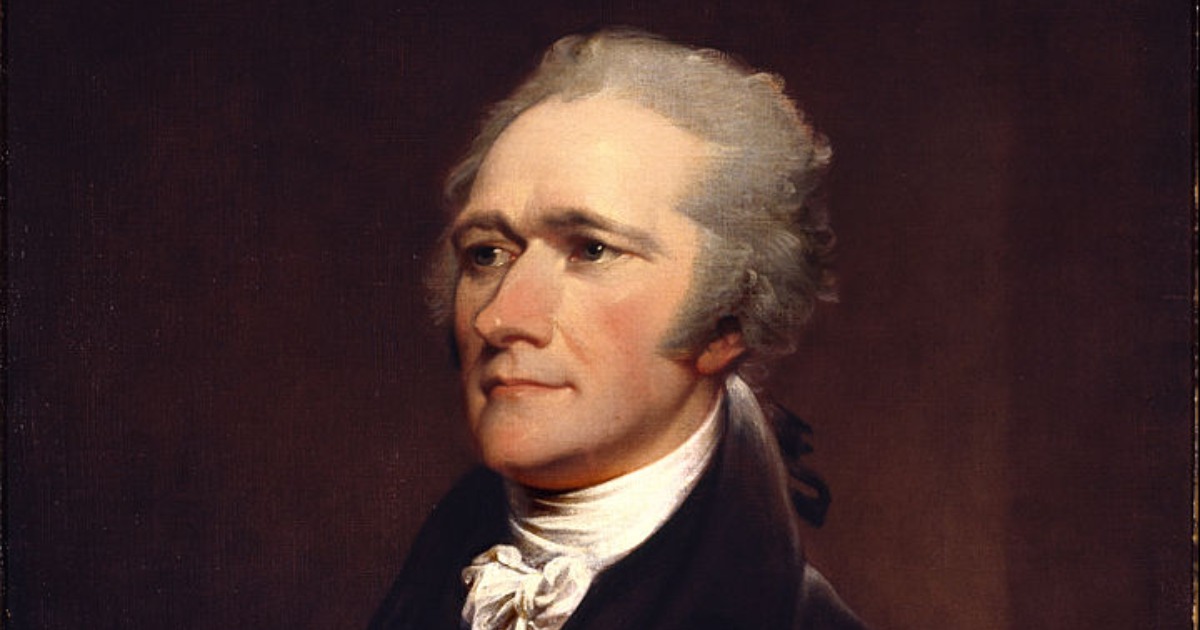Founding Father Alexander Hamilton was truly one for the history books. The definition of an American success story, he went from humble beginnings to occupy the highest offices of government.
Most recently his name has been on people’s lips via hit musical ‘Hamilton’ – both in positive and more controversial ways. But what made this singular figure such a giant of American history? Here are 10 things to know about the Caribbean-born boy turned Broadway box office smash…
10. He was privately educated
For such a learned man (who went on to become the very First Secretary of the Treasury) it may be a surprise to hear Hamilton didn’t go to school. Amazingly this was because parents James and Rachel were not legally married.
Luckily for the young Alexander they had a well-stocked library, which he appears to have taken full advantage of…
9. He had a way with words
All that reading led to a lifetime of literary achievement. Initially drawing the world’s attention with his description of a hurricane at St Croix in 1772, Hamilton received a scholarship to New York’s Columbia University (or King’s College as it was then known).
His writing was political and personal. A long association with George Washington culminated in his working on “the majority of his farewell address” according to History.com. Meanwhile he penned a love poem to future wife Eliza Schuyler. Mental Floss writes that “Schuyler liked it so much, she placed the poem in a little bag and hung it around her neck.”

8. He was captain of the US Army’s oldest unit
Hamilton is also legendary for his involvement in the American Revolutionary War. There he became captain of Battery D, 1st Battalion, 5th Field Artillery, 1st Infantry Division (Mechanized). A long title but one belonging to the regular army’s oldest unit.
He didn’t shy away from conflict. “At the end of the war he had fought in eight separate battles,” writes History Extra, “seven of them between 1776 and 1778, when he became a lieutenant colonel and aide-de-camp to George Washington.”
7. He quit working for George Washington
This combination of eloquent articulator and battle-hardened tactician made him an important player on Washington’s team. “Hamilton’s writing prowess and military skills helped him thrive as Washington’s aide-de-camp, and built his reputation in Revolution-era society” writes History.com.
However, sitting behind a desk as aide-de-camp wasn’t Hamilton’s idea of a worthwhile pursuit. He resigned in 1781, going on to fight at the Battle of Yorktown.

6. He was friend and foe to Aaron Burr
While Hamilton famously passed away after a duel with rival lawyer (and then Vice President) Aaron Burr, the pair did sometimes join forces. Mental Floss mentions that ”Clients gravitated toward the two decorated veterans”, which made them a force to be reckoned with when collaborating in the courtroom.
In 1800 they defended one Levi Weeks, a carpenter wrongly accused of the killing of Gulielma Sands. Together with Brockholst Livingston, Hamilton and Burr cleared his name. It is the first formally recorded trial of that sort in American history.
5. He supported an independent Vermont
During bitter battles over the status of Vermont, Hamilton made his feelings known. Tensions between New York State (operating under a decree from King George III) and the New Hampshirites erupted, with Vermont finally being recognized as its own state in 1791.
The settlement was down to Hamilton, who was “able to spearhead” the agreement, according to Mental Floss. He had argued for Vermont’s independence previously in the Senate – for him, “the prospect of a British-ruled Vermont threatened America’s security.”

4. He wrote most of the Federalist Papers
Without Alexander Hamilton, the Constitution would not have been ratified. He was a driving force behind the Federalist Papers, published between 1787-88.
Hamilton is reportedly responsible for a whopping 51 of the documents. Working alongside James Madison and John Hay, he paved the path to an official seal of approval.
3. He received George Washington’s last ever communication
As previously mentioned, Hamilton helped craft Washington’s farewell address. He also became the recipient of the former President’s last ever letter.
Washington was throwing his support behind Hamilton’s idea of a Military Academy. Mental Floss writes, “In a 1799 letter that would be Washington’s last, the elder statesman told Hamilton such a place would be ‘of primary importance to this country.’”
2. He started the New York Post
Fittingly for such a noted wordsmith, Hamilton established one of America’s most well known publications in 1801. Conceived to promote the Federalist Party, he sought to give Thomas Jefferson a hammering through the medium of print.
“Hamilton’s motives in starting the newspaper were not entirely philanthropic,” writes History Extra, “and he used the paper to push his political agenda.”
He brought his instinct for war to the table during dealings with Jefferson. The pair clashed when he took office as First Secretary of the Treasury. Their opposition to each another would leave a lasting boot print on American politics. “The differences between the two men would help shape the nation’s first political parties” writes History.com.
Related Article: Rare Alexander Hamilton Family Heirlooms Given to Museum
1. He impressed Teddy Roosevelt
George Washington wasn’t the only man in the White House who rated Hamilton’s abilities. No less a President than Theodore “Teddy” Roosevelt saw him as required reading for any up and coming power player.
Roosevelt was “fascinated by all things Hamilton”, according to Mental Floss. “In TR’s mind, Hamilton stood tall as ‘the most brilliant American statesman who ever lived, possessing the loftiest and keenest intellect of his time.’” High praise indeed from the former Commander in Chief.
Steve Palace is a writer and comedian from the UK. He’s a contributor to both The Vintage News and The Hollywood News and has created content for many other websites. His short fiction has been published by Obverse Books.
